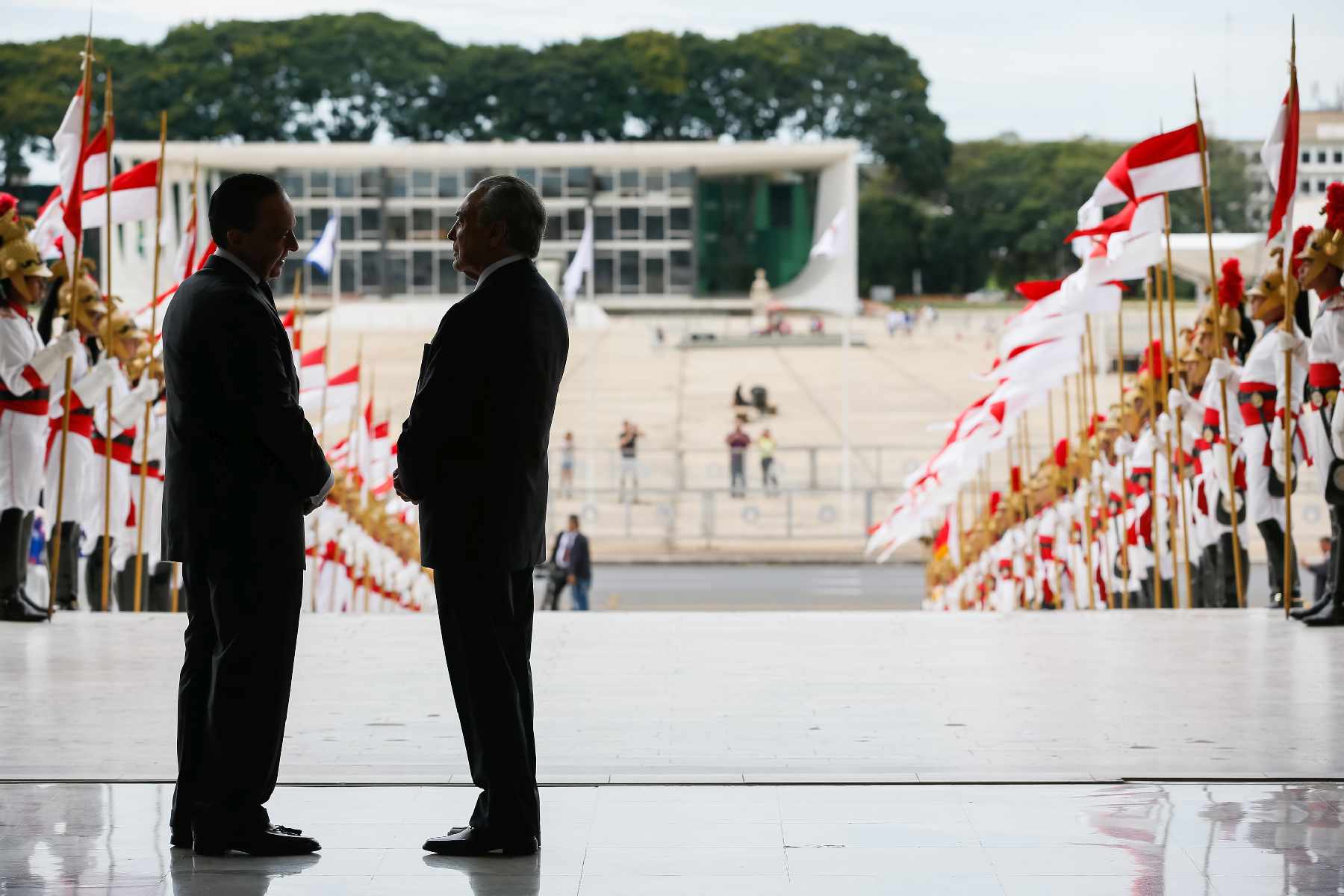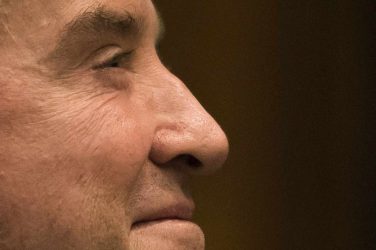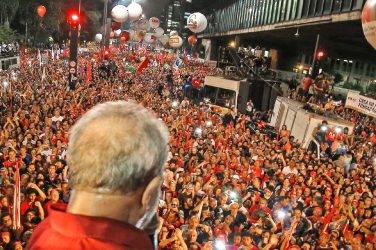Brazil and Argentina say they are going to pursue closer ties with Mexico and other Latin American nations alarmed by US President Donald Trump’s promises to tear apart trade deals and build a wall in the Mexican border to protect American jobs.
In a state visit to Brazilian capital Brasília, Argentina President Mauricio Macri said that Mercosur would focus on strengthening its relationship with Mexico, Latin America’s second-largest economy after Brazil.
Trump has abandoned the Trans-Pacific Partnership deal that aimed to bolster trade between 12 Pacific Rim nations, including Mexico, Chile and Peru.
In his campaign to keep manufacturing jobs in the United States, Trump has also threatened to slap higher taxes on US companies opening new plants abroad and promised to rework the North American Free Trade Agreement with Canada and Mexico.
Tensions are running particularly high with Mexico after Trump ordered the construction of a wall along its 3,200-km border with the United States to stop illegal immigration.
Those moves by Brazil and Argentina were hailed by Macri, who came to power in 2015 on a business-friendly program, and his Brazilian counterpart Michel Temer as an opportunity to deepen trade ties within Latin America, long overshadowed by Washington’s economic might.
“This change in scenario will make Mexico turn to the South with more conviction,” Macri said in a statement, after inking a series of small deals with Temer, a centrist who assumed the presidency last year after the impeachment of Dilma Rousseff.
Temer called for also building ties with the Alianza del Pacifico, a trade bloc including Chile, Colombia, Mexico and Peru. “We discussed the ever greater integration of Latin America, especially of South America and Mexico,” Temer said after his talks.
Macri said he spoke with Mexican President Enrique Pena Nieto on Monday to discuss deepening cooperation between Mexico and Mercosur and wished him good luck in his dealings with the United States.
EU
Brazil and Argentina are interested in creating the conditions to bolster and expand the commercial ties with the European Union, China, Mexico, as well as the US.
According to the Argentine head of state, the idea is to take the opportunity provided by a meeting with chancellors, slated for March but with no venue defined as yet, to bring Mercosur and the Pacific Alliance closer together.
In his speech, Macri said he expects the partnership to cause a historical impact on Mercosur and lead to Brazil and Argentina taking better positions, and not just in the Latin-American scenario.
According to the Argentine president, 2017 will be “a year of positive turns for the development of this strategic alliance as well as for the strengthening of the ties between the bloc and the world.”
Mercosur will be headed by Argentina in the first half of this year and by Brazil in the second. During this period, the goal of the two countries is to bring the bloc closer together and to expand diplomatic ties with other regions of the world.
“It’s time to expand trade, expand investment, and opportunities for Argentineans and Brazilians, since there are no taboos in Brazil-Argentina relations at the present moment,” Temer said in his speech, which was delivered before the traditional lunch with heads of state.
The Brazilian president noted that the partnership is all the more important if one bears in mind the context of “uncertainties in the international scenario.”
“During a time when trends of disunity, isolation, and protectionism have gained momentum, Argentina and Brazil react with a better rapport, more dialog, more trade,” Temer stated, referring to the protectionist policy fostered by US President Donald Trump.
After the address at the Brazilian Foreign Ministry, the Brazilian president handed over to Macri the National Order of the Southern Cross Collar, the highest Brazilian decoration conferred to a foreign head of state.
Deals
This is Mauricio Macri’s first official visit to Brazil. The two heads of state gathered and signed cooperation agreements in the fields of diplomacy, commerce (including state-controlled purchases), and cross-border security, which encompasses the possibility of assistance in emergency cases and civil defense cooperation on frontier areas.
One of the memoranda deals with the partnership between the Brazilian Trade and Investment Promotion Agency (APEX) and the Argentine Agency for Investments and International Trade. This cooperation should include regular meetings between the two agencies and the exchange of publications and information about their markets.
It also calls for stimulus to commercial missions between the two countries, mutual assistance in international fairs, contact between investors for the promotion of industrial and commercial collaboration, and the creation of mixed firms to be brought into operation in other countries.
Macri and Temer also signed a letter to the president of the Inter-American Development Bank (IDB) requesting studies on the creation of an agency for the regulatory convergence of Brazil and Argentina. This plan, Temer argued, will help facilitate the flow of trade and investment.
In the view of the Argentine president, on establishing sanitary and phytosanitary criteria, for instance, this agency would “bolster the productive integration and open up markets bringing employment for Brazilians and Argentineans,” he said.
“We’re partners and we have a lot to share and exchange. We want to be your partners. In football we want to win, but in other fields we want to work together,” he added.
As a priority, Macri also mentioned the fight against drug trafficking and organized crime. Michel Temer remarked that cross-border security assails both Brazil and its neighbors and that therefore it should be properly addressed.
Dialog
Despite political uncertainties in Brazil as the country is shaken by a massive corruption scandal, diplomats from both countries agree that the dialog between the two governments has been “flowing” better than in the recent past, and there is a willingness on both sides to “listen to” suggestions to overcome problems.
“There is some common ground as both Brazil and Argentina have adopted flexible currency policies, have set inflation targets, and advocate negotiations to integrate MERCOSUR with other markets,” the economist said.
One of the topics on the meeting agenda is the adoption of common technical regulations (including sanitary and phytosanitary standards) to reactivate the economic bloc and facilitate negotiations with other markets including the European Union.
The two countries have also discussed bilateral issues, including Argentina’s US$ 4.3 billion trade deficit, which has been a major concern for the Argentinean president.
Macri, a businessman, was elected to be Argentinean president on promises of reducing inflation (which reached 40% in 2016) and poverty (which afflicts one third of Argentinean population) and attract new investment.
But his first year of government has coincided with Brazil’s recession, and now with the election of Donald Trump, who vowed to revise the US’s trade integration deals.
This year, enjoying 45% approval ratings and a legislative election ahead, the Argentinean president faces the challenge of gaining a majority in the Chamber of Deputies and the Senate.
Brazil, for one, wants to add sugar to the list of goods and commodities in the customs union, a proposal Argentina has resisted for the past 20 years, and could now be revised.
Argentina maintains a sugar production in the northern part of the country, and had been shutting its market to the Brazilian product claiming producers in the neighboring country received government incentives.
Another concern for Brazil is a new Argentinean law that encourages the auto industry to buy auto parts produced domestically. Carmakers in Argentina whose products have at least 30% national contents will enjoy tax reduction benefits, and Brazil wants its auto parts to be considered “national” across the border.
The relations with Brazil are critical for Macri, as 40% of his country’s industrial exports have Brazil as their destination market. Moreover, Brazil maintains US$ 12 billion investments in Argentina. Both Macri and Temer are betting on a revival of economic growth in the two countries and the end of the recession.
MP/ABr











